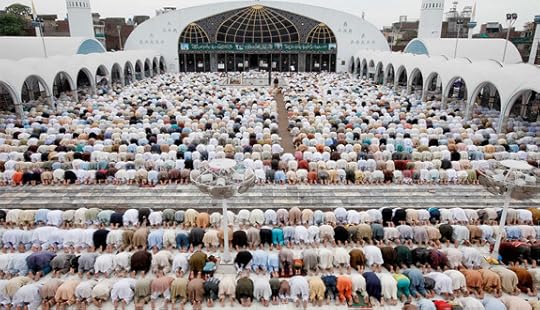The Islamist Spring and the West’s Decline

The Islamist Spring and the West’s Decline | Alvino-Mario Fantini | CWR
An interview with Robert R. Reilly, author of The Closing of the Muslim Mind
Robert R. Reilly is a senior
fellow at the American Foreign Policy Council. He has taught at the National
Defense University and has written for the Wall Street Journal, National
Review, Claremont Review of Books, and the Washington Post. He has
served in the White House as Special Assistant to the President (1983-85) and
was Senior Advisor for Information Strategy in the Office of the Secretary of
Defense (2002-06). He is a former director of the Voice of America and is a
member of the board of the Middle East Media Research Institute. Mr. Reilly is
the author of Surprised by Beauty:
A Listener’s Guide to the Recovery of Modern Music (2002). His most recent book, The
Closing of the Muslim Mind: How Intellectual Suicide Created the Modern
Islamist Crisis, was published
by the Intercollegiate Studies Institute in 2010.
Alvino-Mario Fantini: You recently wrote a best-selling
book entitled The Closing of the Muslim
Mind, which raises the question: How do we re-open the Muslim mind?
Robert R. Reilly
Robert R. Reilly: I had the opportunity
of asking one of the premier intellectual Muslim reformers the question: “If I
could give you all the resources you would need, personnel and money, and a
20-year period, tell me what you would do to turn around the Muslim world.” And
he paused and thought for a minute, and then he said, “I would re-Hellenize
it.” And that, of course, is the message in Pope Benedict XVI’s [2006]
Regensburg Lecture.
This man, who was from a very prominent Syrian
family—deeply learned both in Islam and Western philosophy—knew exactly the
nature of the problem and there are any number of other Muslim intellectuals
like him who do as well. The problem is they’re mostly living in exile because
it’s too dangerous for them to propose doing that in their own societies.
What is your assessment of the so-called Arab Spring?
Does it offer any hope—or reasons to worry?
I was just discussing this with an Egyptian the other
evening…and he’s very optimistic about the Arab Spring. I was very pessimistic
precisely because it doesn’t seem that the culture in the Middle East is going
to allow for the development of genuine democratic constitutional rule,
precisely because it hasn’t been re-Hellenized, precisely because it has not
restored the integrity of reason, precisely because majority Sunni Islam still
denies the existence of natural law—without which it is impossible to develop
sound constitutional theory. As I expressed to him, the problem is a deformed
theology that has produced a dysfunctional culture.
None of the intellectual currents in the Middle East are
headed in the right direction. They are headed in the Islamist direction. This
is an “Islamist Spring.” The Muslim Brotherhood’s offshoots have so far either
won these elections or gained a large plurality in them. The signs are not
good. But they are perfectly logical in terms of the principles on which these
Muslim Brotherhood organizations operate. So they’re headed backwards.
Backwards is where they want to go.
As the Arab Spring has toppled regimes in the region, it
has created a situation of instability and great uncertainty in many countries.
There is a power vacuum slowly being filled by new groups. What’s coming next?
Continue reading on the CWR site.
Carl E. Olson's Blog
- Carl E. Olson's profile
- 20 followers



